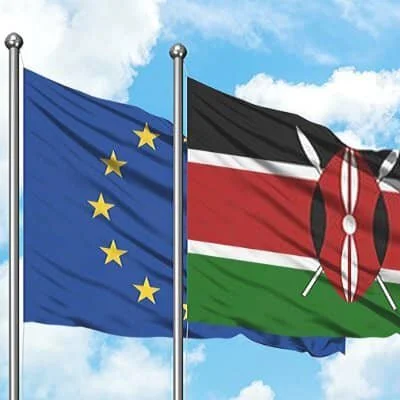EU Roadmap For Engagement With Civil Society In Kenya:2019-2022
The European Union (EU) has a long-standing global commitment to supporting and advocating for the role of independent, peaceful, representative civil society organizations (CSOs) as important actors in development and in the strengthening of democratic processes and structures.
The new Roadmap is intended as a strategic instrument, which will complement the EU Joint Strategy 2018-2022 and provide guidance to the different areas of EU engagement with Civil Society –political and policy dialogue, development cooperation, and trade – rather than an output-specific plan of action.
Kenya is touted as having a vibrant and dynamic Civil Society that has been key in the democratic and developmental gains made by Kenya. Civil Society in Kenya exemplifies resilience and innovation in the face of this fairly young democracy.
The term civil society in its current understanding has evolved over the years and is often associated with quests for social transformation and the realization of social justice. From the early 1920s until 1963, civil society organizations(CSOs) played a prominent role in the struggle for independence.
From the time of independence until the late 1970s, many CSOs worked closely with the Government to complement its service delivery efforts. However, the 1980s and 1990s were characterized by new dynamics: as western donors made economic support to the Government conditional on good governance and democratization, CSOs (in particular Non-Governmental Organisations and faith-based organizations) began to demand a multi-party system.
They also became more vocal on national political issues such as constitutional reform and good governance. Indeed, these CSOs contributed immensely towards the transition (in 2002) from authoritarian to democratic rule through their efforts to advance political rights and freedoms as well to broaden the democratic process.
The new political dispensation in 2002 opened the door for improvement in Government/CSO relations as meaningful dialogue and increased engagement between the two sectors began to take place. The government encouraged CSOs and other stakeholders to partner with them, especially in addressing the complex issues facing the country.
CSOs also became aware that they need to address issues of competence, sustainability, and credibility within their own sector more earnestly if they are to play their role and engage with other partners effectively. In this regard efforts to strengthen CSO accountability and sustainability have been made that culminated in initiatives like Viwango; a quality standards mechanism for CSOs, the PBO Act 2013, and the Kenya Philanthropy Network.
However, the relationship between CSOs and government from 2013 became increasingly strained as the incoming regime came down hard on the sector partly in retaliation for the role of some CSOs in pushing for accountability for the 2008 Post Election Violence (PEV), corruption, and other accountability issues which implicated top leaders in Government.
This manifested in several ways such as attempts to amend the PBO Act 2013 and introduce retrogressive provisions, and profiling of CSOs and leaders (Evil Society). Perceptions around the behavior of the regulator pointed towards mistrust, which did not improve when the mandate for oversight of CSOs was moved from the Ministry of Devolution and Planning to the Ministry of Interior and Security.
The Youth Cafe will be taking part in the consultation sessions between the European Union and civil society. We will be focusing on two of our eight priorities: Governance and Political inclusion and Peace and Security, including preventing violent extremism.
Corporate and foundation partners can play a constructive role in finding collective solutions for some of the problems tackled by The Youth Cafe either in a specific region or on a specific topic. Partner With Us.


